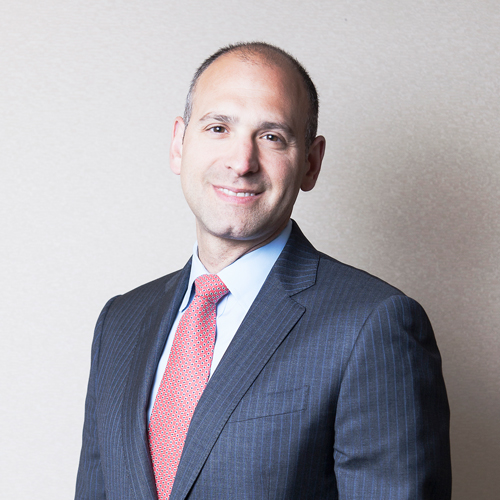
VP of Litigation, Data Protection, and Employment Law,
Motorola Solutions
Born and raised in Puerto Rico by a Puerto Rican father and Spanish mother, Manuel Cuevas-Trisán always had a curiosity about other cultures and a love of travel, which ultimately led him to Motorola. “I always wanted to be operating in an international, multicultural setting,” he says.
Cuevas-Trisán’s path to Motorola was not atypical for an attorney. After obtaining a bachelor’s degree from the University of Notre Dame in South Bend, Indiana, he returned to Puerto Rico for law school, thinking he’d settle in his native island, and began working as legal clerk in the Puerto Rico Court of Appeals. After developing an expertise in labor law, he joined the labor and employment-law department of McConnell Valdes, the largest full-service law firm in Puerto Rico. Several years passed, and an opportunity arose to join the staff of one of his clients, Motorola, which was then a major manufacturer of pagers and other communications devices in Puerto Rico.
At Motorola, Cuevas-Trisán gained exposure to many areas of law. When the company’s Puerto Rico pager plant shut down, he moved to Ft. Lauderdale, Florida, where he continued to focus on labor and employment law for nine years. By 2007, however, he was ready for a change and relocated to the company’s headquarters in Illinois to work as a commercial contracts attorney supporting global procurement. In 2009, he became lead counsel in charge of the legal team that supported Latin American mobile device sales. He then returned to his roots and became the head of employment law in 2012, established the company’s privacy and data protection legal practice, and in 2014 became the head of litigation. “My formal title is vice president of litigation, data protection, and employment law,” he says.
For Cuevas-Trisán, it’s an exciting role in an exciting company. Motorola Solutions has evolved from the pager manufacturer it once was. The successor of Motorola Inc., it was divested from the consumer pager and cellphone business in 2011, and today serves only mission-critical public-safety and industrial organizations—police and fire departments, for example, as well as emergency first responders, command and control centers, transportation, and mining businesses. Motorola Solutions services are used all over the world in this capacity. “We provide the equipment and services that allow those entities to function successfully, from walkie-talkies to highly complex, data-rich and intelligence-based communications systems,” Cuevas-Trisán says.
As a result, the company manages very sensitive information, and there is an increasing business need for it to establish appropriate security controls and privacy provisions—thus the creation of the company’s privacy and data protection legal practice in late 2012, which was a unique challenge. “The other practices I led were mature, with established processes and a clear understanding among internal clients,” he says. “The privacy and data protection practice required me to create a structure from the ground up with few resources, and we had to consider the legal issues involved in managing customer information in a non-consumer context.”
By that, Cuevas-Trisán means that most people consider privacy and data protection to be consumer rights, but Motorola Solutions doesn’t serve consumers directly. “Making the business case that we needed to be concerned about this in a B-to-B context was a challenge,” he says. “In addition, because many of our customers are public agencies that handle extraordinarily personal information about their constituents, we have to balance the private interest in protecting privacy and civil liberties with the public interest in ensuring safety in our cities.”
“I always wanted to be operating in an international, multicultural setting.”
Ultimately, Cuevas-Trisán is establishing a program that touches every aspect of the organization, from research and development to human resources. Motorola Solutions now has a cross-functional privacy committee that oversees internationally certified privacy policies. It became only the 22nd company in the world to obtain authorization of its binding corporate rules (BCRs) in the European Union, which allow multinational corporations to make intra-organizational transfers of personal data across borders in compliance with EU data-protection law—and Cuevas-Trisán and his team accomplished it in just over two years.
Today, the company has been distinguished for its privacy and data protection practices, receiving the highest marks in its industry segment for privacy protection practices by the Dow Jones Sustainability Index two years in a row.
“It’s a work in progress,”says Cuevas-Trisán, who has also been tasked with other company leaders to find ways to simplify the way the company does business. “We need to be swifter and more nimble, be an easier company to do business with, because we’re much smaller now and don’t have the same scale of Motorola Inc.,” he says.
“My colleagues and I are now working on simplifying our policies. We’re asking ourselves, for example, ‘Do we need twenty different policies on educational assistance because we’re in twenty countries?’ Maybe there’s a way to come up with a framework that allows us to reduce complexity and streamline decision-making. That’s how we create value for the business.”

